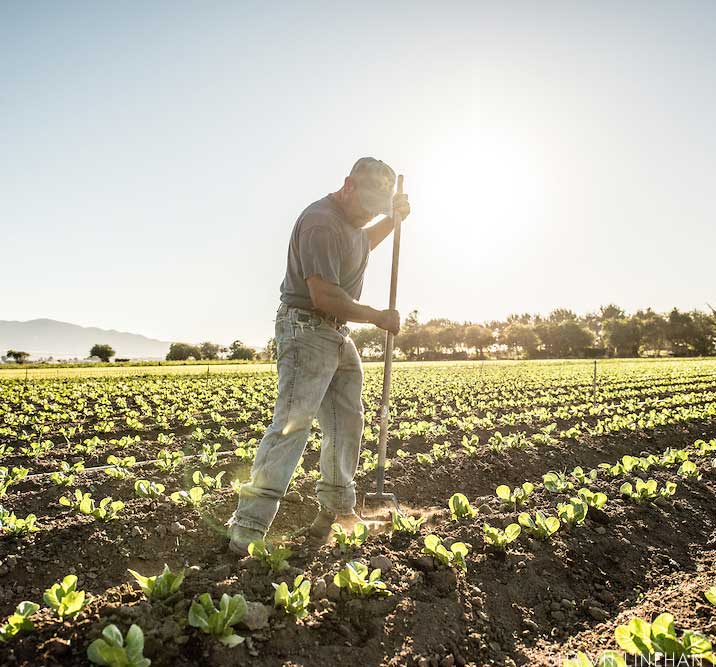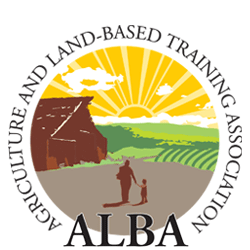ALBA’s Farmer Education and Enterprise Development (FEED) program develops organic farming and business management skills of individuals in the agricultural sector to enable farm business ownership, career advancement, or a more inclusive agriculture sector. The program utilizes ALBA’s experienced bilingual staff, a trusted network of farm service providers, and a 100-acre organic farm training facility in the Salinas Valley.
Each year, approximately 80 farmers with limited resources receive affordable education, land, farming equipment, and technical assistance. Through hands-on, land-based learning, they acquire organic production and business management skills, enabling them to pursue the goal of farm ownership or find better job opportunities. FEED consists of two components over five years: PEPA and the Organic Farm Incubator, detailed below.
Farmer Education
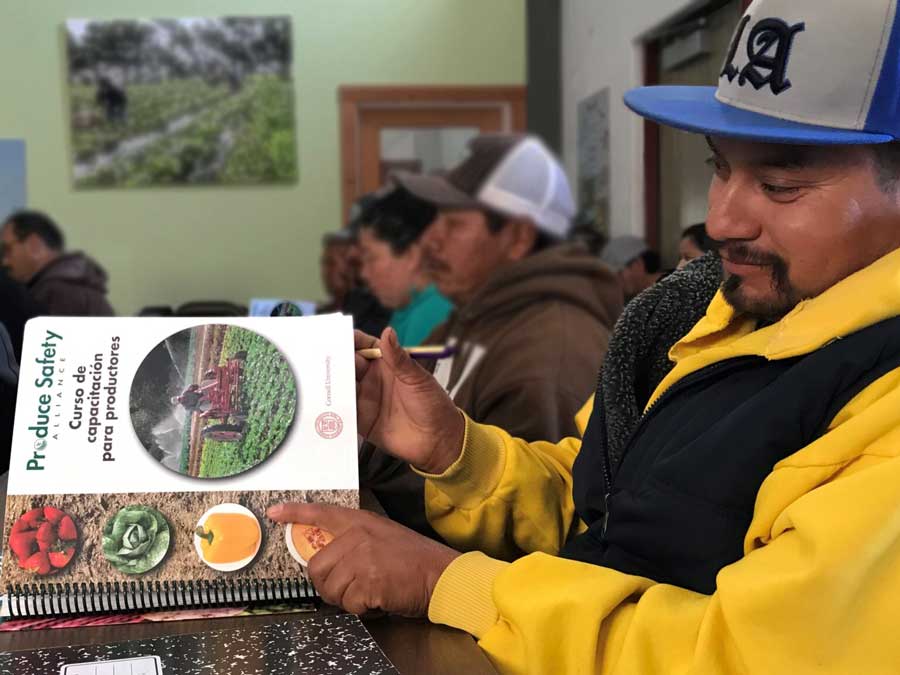
The Farmer Education Course provides newly enrolled participants with on-farm education focused on organic farming practices and farm business management. Each year, aspiring farmers and agriculture professionals enroll in the 1-year, 250-hour course, combining classroom and field training to prepare participants for launching and operating an organic vegetable and strawberry farm.
The course is divided into five 8-week modules covering soil health, crop planning, business planning, marketing, and organic production. The final module includes a ‘boot camp’ for farmers ready to start their own farms, focusing on business plan development and coaching from staff and partners
Classes are held on weekday evenings and Saturday afternoons to accommodate work schedules. Accredited by Hartnell Community College, ALBA invites guest speakers from agribusiness, public, and non-profit sectors and organizes field trips to expose participants to farm ownership and career pathways in organic agriculture.
Organic Farm Incubator (OFI)
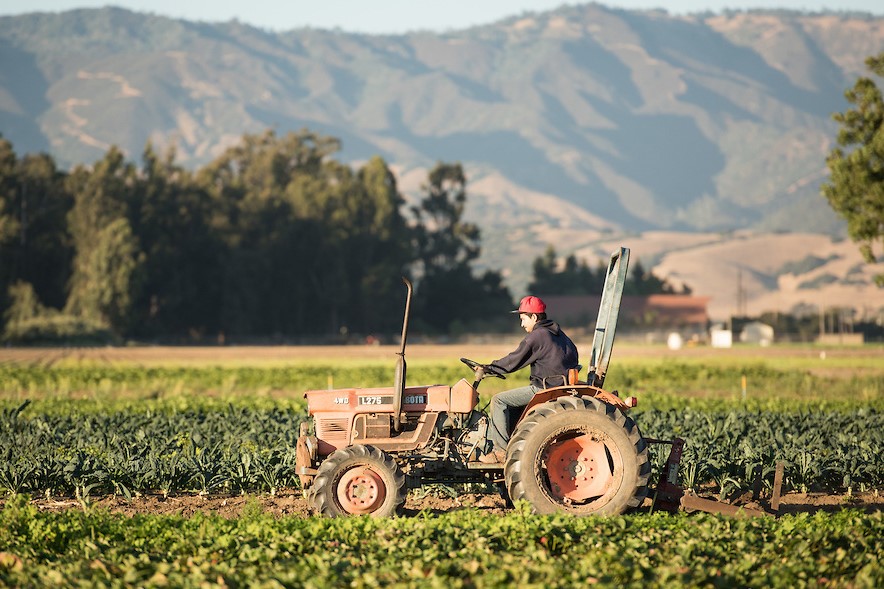
Graduates of PEPA have the opportunity to join the Organic Farm Incubator and establish their own farms on ALBA’s land. Each year, ALBA leases over 80 acres of farmland to 36 to 40 start-up organic farms, with 10 to 15 newly launched farms. Land and equipment are available at reduced prices, set at 20% of market value in the first year, increasing to 80% in the fourth year. Farms start on ½ acre and can expand to about five acres over four years in the Incubator, before transitioning to independent farming.
While in the incubator, technical assistance from ALBA staff and partner organizations is provided at no charge. ALBA’s experienced staff offers daily guidance on production, management and compliance issues to help nascent farm enterprises establish themselves in a highly competitive environment.
Workforce Development
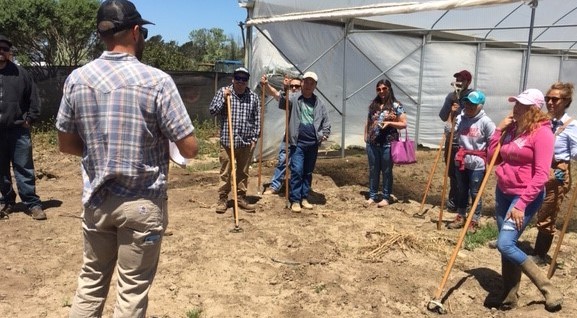
ALBA is known for incubating organic family farms, but the program may have a greater impact on the workforce. In a typical class, 35 participants complete at least one module of PEPA, and 20 graduates complete all 5 modules. Twelve go on to launch a farm at ALBA, of whom 5 are establish viable farm enterprises. Therefore, only about 15% of ALBA participants end up farming independently with the majority using the experience to secure better employment or to earn college credit for students of Hartnell community college while providing valuable on-farm experience and career exposure.
In the Community
ALBA has its hands full training farmers, but we also contribute on several community initiatives to give the community better access to food and on-farm education.

Market Match
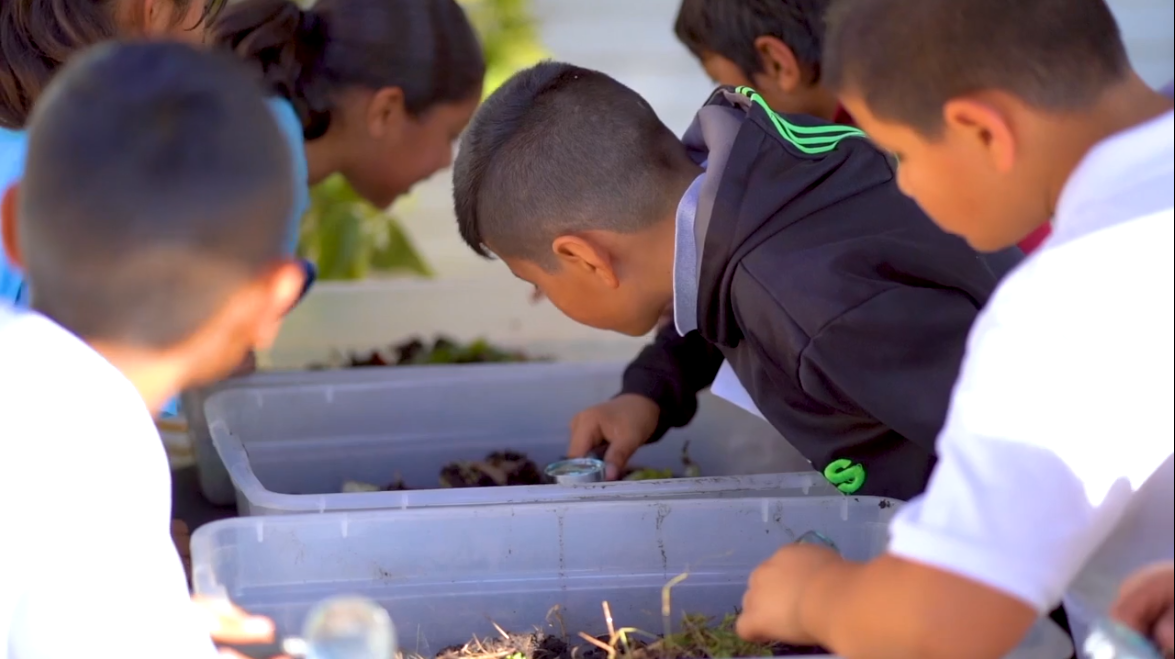
The Food, Land, Water Project
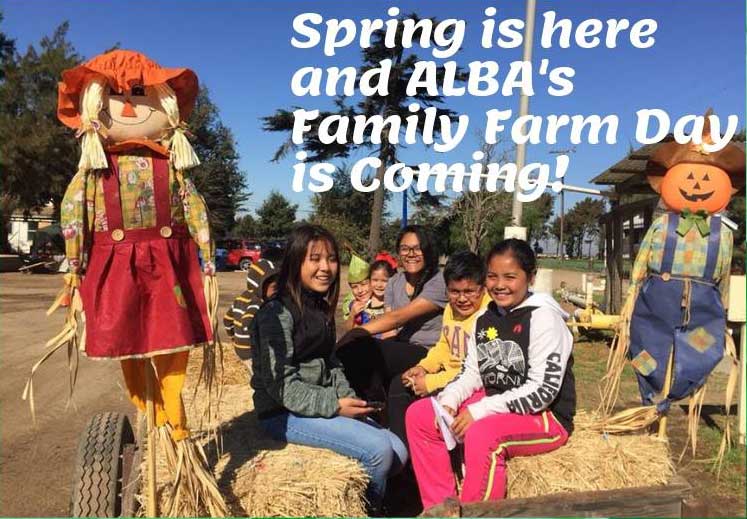
Family Farm Day
